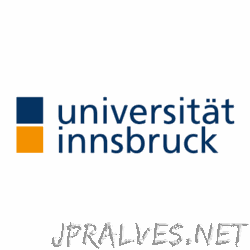Other

“Scientists led by Peter Zoller have developed a new tool for the measurement of entanglement in many-body systems and demonstrated it in experiments. The method enables the study of previously inaccessible physical phenomena and could contribute to a better understanding …

“In physics, quasiparticles are used to describe complex processes in solids. In ultracold quantum gases, these quasiparticles can be reproduced and studied. Now, for the first time, Austrian scientists led by Rudolf Grimm have been able to observe in experiments …

“In order to obtain information about dark matter and dark energy from the huge amounts of data to be generated by the new ESA probe Euclid, Innsbruck astrophysicist Laila Linke and her team are using novel statistical methods. As soon …

“Quantum physics has allowed for the creation of sensors far surpassing the precision of classical devices. Now, several studies in Nature show that the precision of these quantum sensors can be significantly improved using entanglement produced by finite-range interactions. Innsbruck …

“Researchers from Austria and USA have designed a new type of quantum computer that uses fermionic atoms to simulate complex physical systems. The processor uses programmable neutral atom arrays and is capable of simulating fermionic models in a hardware-efficient manner …

“Anions, negatively charged ions, are reluctant to be cooled. Physicists led by Matthias Weidemüller from Heidelberg University and Roland Wester from the University of Innsbruck have now developed a method for cooling molecular anions to below 3 Kelvin in a …

“A quarter of a century ago, theoretical physicists at the University of Innsbruck made the first proposal on how to transmit quantum information via quantum repeaters over long distances which would open the door to the construction of a worldwide …

“Today’s computers are based on microprocessors that execute so-called gates. A gate can, for example, be an AND operation, i.e. an operation that adds two bits. These gates, and thus computers, are irreversible. That is, algorithms cannot simply …

“Recently quantum computers started to work with more than just the zeros and ones we know from classical computers. Now a team at the University of Innsbruck, Austria, demonstrates a way to efficiently create entanglement of such high-dimensional systems to …

“Solids can be melted by heating, but in the quantum world it can also be the other way around: An experimental team has shown how a quantum liquid forms supersolid structures by heating. The scientists obtained a first phase diagram …

